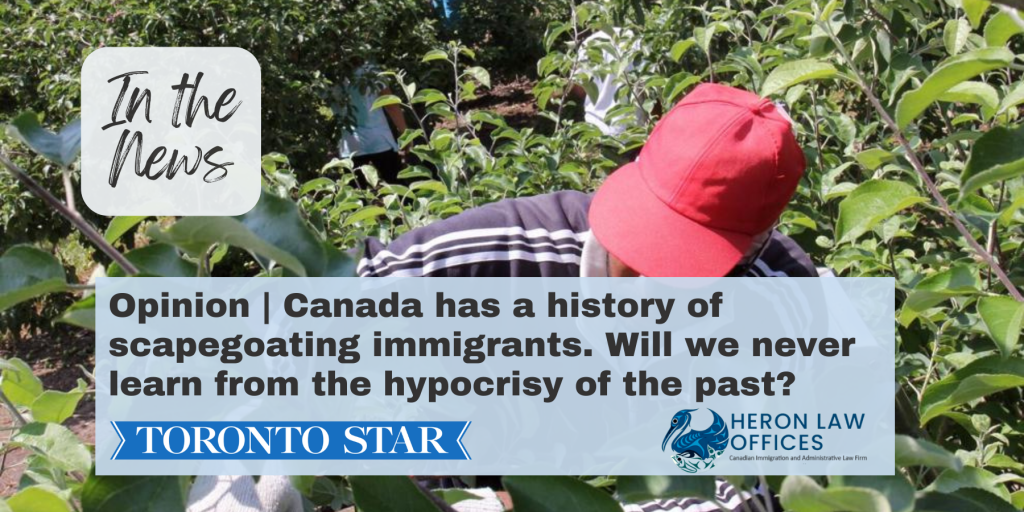
As anti-immigrant sentiment grows in Canada and migrants are increasingly being blamed for issues like unemployment and housing shortages, in this Op-Ed for the Toronto Star, Will Tao and Karina Juma shed light on a neglected perspective: migrant mental health.
In this Op-Ed, Will Tao and Karina Juma reflect on Canada’s recurring tendency to scapegoat immigrants, particularly during periods of political and social tension. They argue that despite immigrants playing crucial roles in society—such as delivering food, providing healthcare, and caring for the vulnerable—there is a growing shift towards exclusion and discrimination.
“Perhaps, rather than scapegoating, recording videos on our phones, or going online to rail hate or spread rumours, we should take responsibility for our own contribution to policy decisions. It is our immigration policy that has shifted 180 degrees from welcome mat to pulling the rug. Perhaps we should also take some time to interrogate the gap between the economic puzzles and the human realities we have helped create.”
Will Tao and Karina Juma’s Quotes from the Toronto Star Op-Ed
This shift is exemplified by recent policy changes, such as limits on international student permits and reductions in temporary foreign workers. The authors express concern about the mental health impact of anti-immigrant sentiment, describing how migrants feel betrayed, silenced, and surveilled. Tao and Juma highlight the disconnect between the economic contributions of migrants and the policies that marginalize them. They call for solidarity with migrants, acknowledging their struggles and challenging the growing culture of scapegoating and xenophobia.
Read more here in the Toronto Star: Opinion | Canada has a history of scapegoating immigrants. Will we never learn from the hypocrisy of the past?




